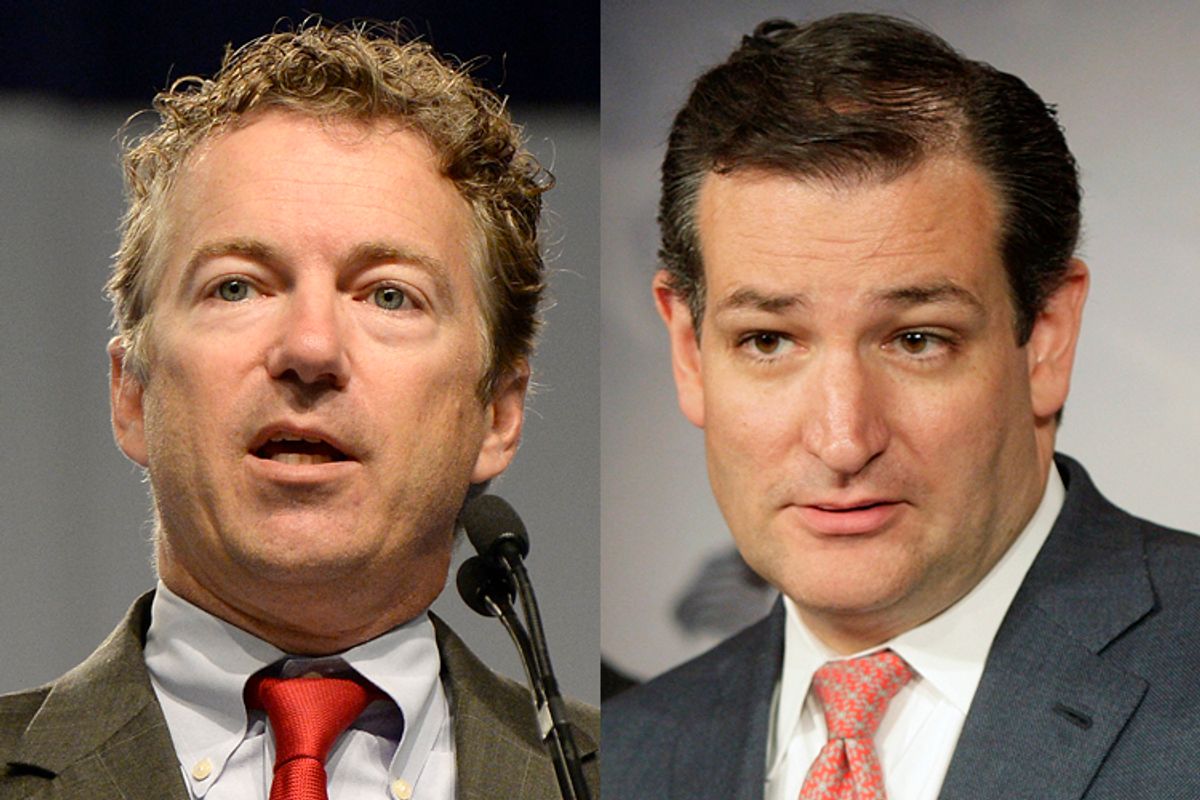A few things are for sure: At some point in the near future Congress will pass legislation to fund the government; it won't defund Obamacare or make sequestration-level spending semi-permanent; and some Republicans will vote for it.
It's possible there will be a government shutdown between now and then -- I wouldn't bet on it, but it's possible. And even if a shutdown happens, the impasse will break when Republicans agree to government spending legislation that neither cripples Obamacare nor bakes sequestration into the budget for the coming year and years beyond.
It's also a good bet that the same group of Senate Republicans who voted for immigration reform and helped confirm President Obama's top executive nominees will be instrumental in avoiding or ending a government shutdown.
And yet the Senate's governing coalition is fledgling enough that Senate Minority Leader Mitch McConnell was able to overpower it last week when he organized a successful filibuster of bipartisan legislation to fund the Departments of Transportation and Housing & Urban Development for a full year -- precisely because it was drafted under the premise that sequestration will probably, eventually, be lifted.
That might seem like a contradiction: If these more moderate Republicans are going to partner with Democrats to fund the government drama-free, why are they mounting filibusters of bills that don't assume sequestration-level spending forever?
It's a fair question. And at a glance they don't appear all that committed to breaking ranks with the GOP over questions of basic governance. But if you were hoping for a total and immediate GOP crackup over the budget, or the debt limit, you'll be disappointed by the answer.
The idea that McConnell's filibuster is a harbinger of autumn crises doesn't really fit the facts. Many, many Senate Republicans -- not just the moderates -- have made it clear that they won't use a threat of a government shutdown (or a debt default!) as leverage to take an ax to the Affordable Care Act. Several have telegraphed that they're comfortable funding the government, even if the fight over sequestration has to be settled later, and they aren't prepared to threaten the country with a debt default.
Rather, as a demonstration of power, McConnell's filibuster was pure artifice -- a gambit meant to prove that he can still steer his party and win fights for conservatives. It came at the end of a series of defeats, including the confirmation, over his objections, of several key Obama nominees, and the news that he's facing a well-heeled primary challenger. He needed to put an end to that streak.
And, notably, it came the day after House Republicans gave the lie to their entire budgeting raison d'être, when their own Transportation/HUD bill failed spectacularly. If McConnell's filibuster had failed, the GOP would have had a real nightmare on its hands -- the contrast between the incompetent Republican House and the responsible Democratic Senate would have spoken volumes to voters about where responsibility for the mess in Washington lies.
But just because the filibuster succeeded doesn't make the victory any less pyrrhic. The path to avoiding a government shutdown still runs through the Senate. And just as was the case when the immigration reform passed, and when Obama got his administrative vacancies filled, it ends with McConnell voting along with the conservatives in his party against funding the government, but unwilling or unable to win their fights for them.



Shares